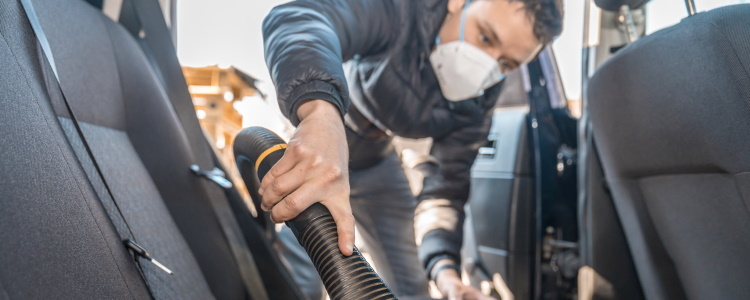Sometimes you can trade in a vehicle if you’re behind on your loan payments – but it may depend on how far behind you are. If the lender is already trying to recover what you owe them by taking the car, chances are you won’t get the financing you’re looking for.
It all depends on your equity position – if your car is worth more than you owe you have equity. If your trade-in won't cover the balance of your loan, then you have negative equity. If you can't afford to cover the gap between what you owe and what the car is worth, then you can't sell the car.
However, if there's equity in your car you should be able to proceed with a trade-in. Here's what we know.
Falling Behind on Auto Loan Payments
If you're falling behind on your car loan, the best course of action is to talk to your lender right away. Depending on your situation, most lenders are willing to work with borrowers who are facing temporary difficulties.
When it looks like you may fall behind, your lender might arrange a grace period or allow you to skip one or two payments and add them to the end of your loan term. This is a process called loan deferment, and it can enable you to catch up.
However, if it's going to be a long-term problem, there are other options you’ll want to explore – including trading your vehicle in, or refinancing. You should still talk to your lender first because it won’t do you any good to attempt to trade in the car without your lender being in the loop.
If you’re already running from the repo man, getting rid of your car in order to prevent repossession or to avoid paying what you owe, is considered fraud. Any attempt you make to defraud a lender can spell big trouble for you.
Trading in a Car When You’re Behind on Payments

If you’re in a repossession situation and plan on trading your vehicle to a dealer, there’s really no hiding the fact that you’re behind on the payments. A few things are going to stand out to above-board dealers right away, like late payments showing on your credit reports, and the fact that a lender is listed as the first secured interest on the title.
If these aren’t enough of a giveaway, the dealer will certainly find out when the lender is contacted for a 10-day payoff amount, which is a standard practice for trade-ins.
If you speak with your lender before they begin the repossession process, they might allow you some time to trade in your car and pay off the loan, but you’ll probably need to act fast. If this is the case, there's one of two ways the situation can work out depending on your equity position. But, if you're behind on payments, here's how it works:
- If you’re underwater with your car – Trading in a vehicle in this situation means you’ll most likely have to pay the difference between your loan balance and vehicle value out of pocket. If you can’t pay out of pocket, a lender may consider rolling the difference into your new loan. This means the original loan contract gets paid off, but the difference between the amount your car is worth and the amount you owe gets tacked onto your new loan. It may seem like a good idea to solve your current situation, but the added cost will start you out even further upside down on your new loan. This can cause you to get stuck on the trade-in treadmill.
Before you Jump into a Trade-In
Before you jump into a trade-in situation, be sure you know if there's equity in your vehicle. To find out, first find out how much you owe on your vehicle by requesting a 10-day payoff amount or looking up the balance of your loan online. Then, you can fill out an online valuation guide to see the estimated value of your vehicle and compare this to the amount you owe. Or, you can also have your car appraised by a dealer for a trade-in price. If they offer you more than you owe, you're likely in a good position to trade in and have money left over for something else.
If you're going the appraisal route, make sure you prepare your vehicle for inspection by giving it a good cleaning inside and out, fixing any issues, scratches, or dents that you can, and making sure you have your service records available to show that the car was cared for. If you're using an online valuation site, be honest in your answers and know that this is only an estimated value and what a dealer offers you may vary.















